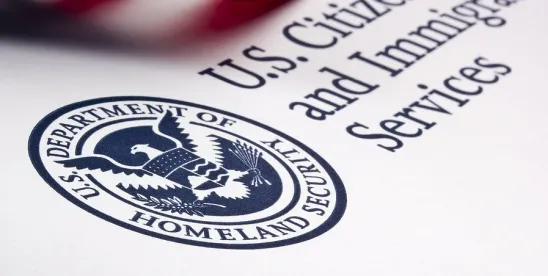In an Aug. 15 policy memo, USCIS issued new guidance on how it will evaluate “good moral character” (GMC) for naturalization applicants.
USCIS is moving away from a checklist-style review toward a more rigorous, holistic, and comprehensive assessment. The goal is to ensure that applicants granted U.S. citizenship are not only free from disqualifying acts but also demonstrate positive attributes and contributions to society.
Background
- Pre-1990: GMC determinations considered both negative and positive factors, viewing legal bars as minimum disqualifiers. USCIS officers weighed evidence like community service, family responsibilities, and rehabilitation.
- Post-1990: Changes in immigration law (including the expansion of “aggravated felony” definitions and fixed bars for certain offenses) led to a more mechanical, exclusionary approach, focusing mainly on the absence of statutory disqualifications.
Current Legal Standard
- USCIS applies the “preponderance of the evidence” standard to N-400 applications. This means that applicants must demonstrate it is more likely than not that they have met all the naturalization requirements.
- There are unconditional, permanent bars (e.g., murder, aggravated felonies, genocide) and conditional bars (e.g., controlled substance violations, repeated DUI, fraud).
- USCIS officers consider all relevant evidence – positive and negative – when evaluating the applicant’s GMC.
- GMC should reflect character “commensurate with the standards of average citizens” in the applicant’s community.
What Are the Key Changes in Evaluating GMC?
- Totality of Circumstances:
- USCIS officers must assess not only the absence of wrongdoing, but also positive behaviors and contributions.
- The evaluation should be holistic, considering the applicant’s full history and current lifestyle.
- Emphasis on Positive Attributes:
- Factors such as sustained community involvement, family responsibility, educational achievements, stable employment, lawful residence, and financial responsibility (including tax compliance) will be weighed favorably.
- Higher Scrutiny of Disqualifying Behavior:
- Permanent and conditional bars are still enforced.
- Officers will look for other social questionable behaviors contrary to community standards, even if technically lawful, such as habitual reckless driving, repeated traffic offenses, social misconduct, or harassment.
- Documentation and questioning may be used to clarify circumstances of questionable acts.
- Consideration of Rehabilitation:
- Evidence of genuine reform (e.g., fulfilling family obligations, complying with court orders, community testimony, mentoring, repaying debts or taxes) may support GMC findings and rebut repeated offenses.
- Applicants are expected to present their “full story” to demonstrate alignment with community ethical standards.
USCIS is restoring a more nuanced, comprehensive GMC standard for naturalization. Officers will consider both adverse and favorable factors, giving greater weight to an applicant’s positive contributions and rehabilitation, not just the absence of disqualifying conduct. Applicants might expect more thorough background reviews that go beyond criminal record checks, as well as potential delays if the USCIS officer requires additional documentation to evaluate the applicant’s moral character.
Clarissa C. Upadhyay contributed to this article


 />i
/>i

